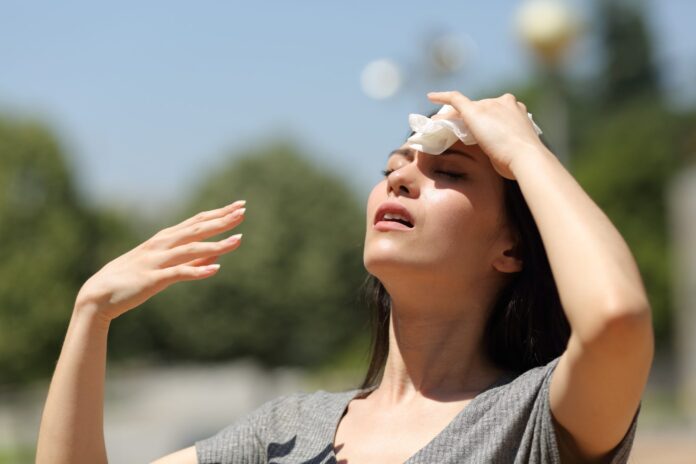While heat is the number one weather-related cause of death in the United States, many of these deaths are preventable, says an emergency medicine doctor at the Virginia Tech Carilion School of Medicine.
Dr. Stephanie Lareau says it is vital to recognize signs and symptoms of heat-related illness.
“Understanding the symptoms of exposure to extreme heat and managing the effects is crucial and that includes knowing early signs of heat exhaustion to prevent progression to heatstroke,” said Dr. Lareau.
According to the U.S. Department of Health and Human Services, there were more than 2,300 heat-related deaths in 2023, compared to just over 1,600 in 2021. “Being prepared and educating yourself on the effects of heat are key to prevention,” says Lareau.
Heat exhaustion vs. heatstroke
“The CDC considers heat exhaustion a less severe precursor to heatstroke,” said Dr. Lareau. “To help an individual suffering from heat exhaustion first prevent further exposure by getting them into the shade or air conditioning if possible. Then begin cooling them with immersion in cold water or misting them with cool water.”
Symptoms of heat exhaustion include:
- Feeling faint or dizzy
- Sweating profusely
- Cool, pale, clammy skin
- Vomiting, nausea
- Rapid pulse
- Muscle cramps
“The hallmark of heatstroke is an altered mental state, such as confusion or inability to walk,” said Dr. Lareau. “This is a potentially life-threatening medical emergency, so you should call 911 and work on cooling the person down. Simple things such as getting them out of direct sun, spraying them with cool water, and immersing them in water (if they are awake and able to help) can help while you are awaiting more aid. The fastest and preferred way to cool someone is immersion in cold water.”
Symptoms of heatstroke include:
- Pulsating headache
- Loss of consciousness
- Hot, red, dry skin
- Temperature above 103
- Vomiting, nausea
- Rapid, weak pulse
Keeping hydrated
“If you’re working outdoors under the summer sun, it’s important to stay well hydrated,” says Dr. Lareau. “Make sure you have water available and are drinking it at regular intervals. A good rule of thumb is to make sure your urine looks light yellow to clear. Take frequent breaks and get out of the sun. If possible, try to get your work done during early morning or late evening when the temperatures are lower.”
Exercise early to avoid the midday heat
Dr. Lareau stresses that just as with work, get outside early for workouts to avoid midday heat. “Wear light-colored, breathable clothing and be sure to drink plenty of fluids. Exercise tolerance can decrease when it’s hot, so plan accordingly. Slowly increase exercise to help your body become acclimatized to increasing temperatures. On a day with a high heat index, consider going for a swim or running on a treadmill indoors instead of running outdoors.”
If you plan to hike or participate in another longer outdoor activity, remember that in hot weather, you need more water than usual. “If you expect to rely on streams or creeks for your water supply, talk to those familiar with the area to make sure they aren’t dry. If you’ll be doing strenuous activities, it’s essential to bring electrolyte drinks as well to avoid exercise-induced hyponatremia, which is low sodium or salt levels that can lead to confusion and even seizures.”
“As with any outdoor activity, it’s also helpful to get acclimated to the heat before embarking on ambitious adventures. If you are on medications for blood pressure, heart problems, or psychiatric conditions, you should talk to your doctor about these medications and your outdoor plans. Some medications can predispose individuals to heat illness or dehydration,” says Dr. Lareau.
About Lareau
In addition to her work in the Carilion Clinic emergency department and teaching at Virginia Tech, Dr. Stephanie Lareau is a board member of the Wilderness Medicine Society, which helps medical professionals get additional training in environmental emergencies such as hypothermia, hyperthermia, and other weather-related outdoor problems. More here.


